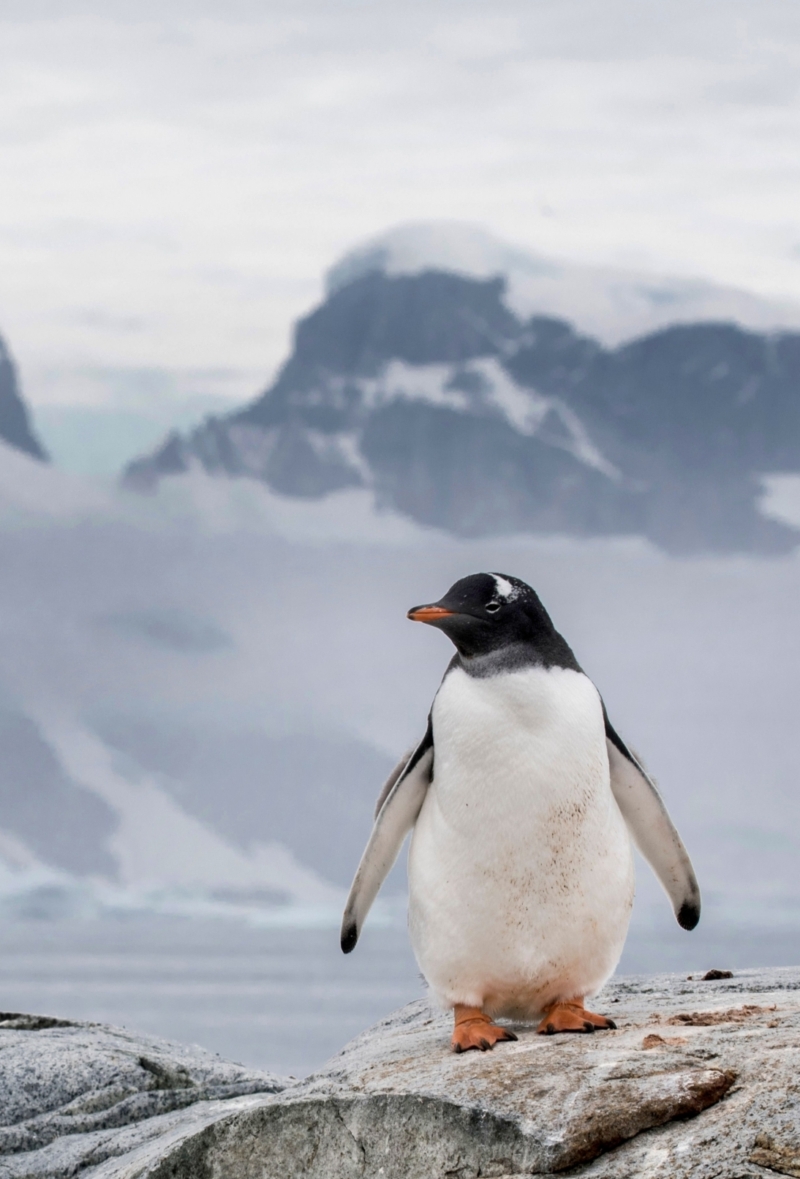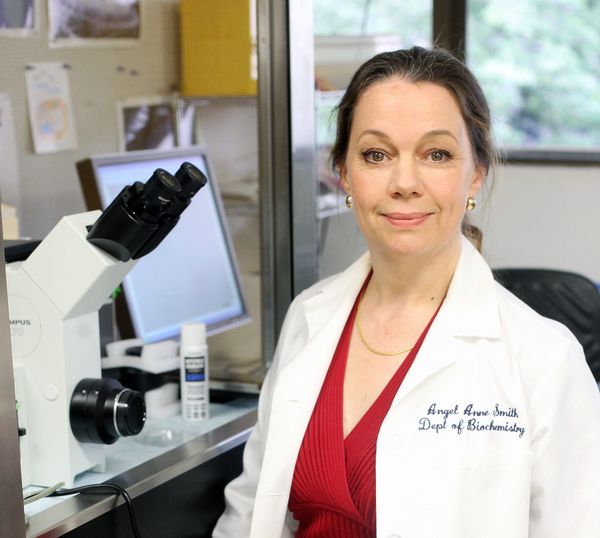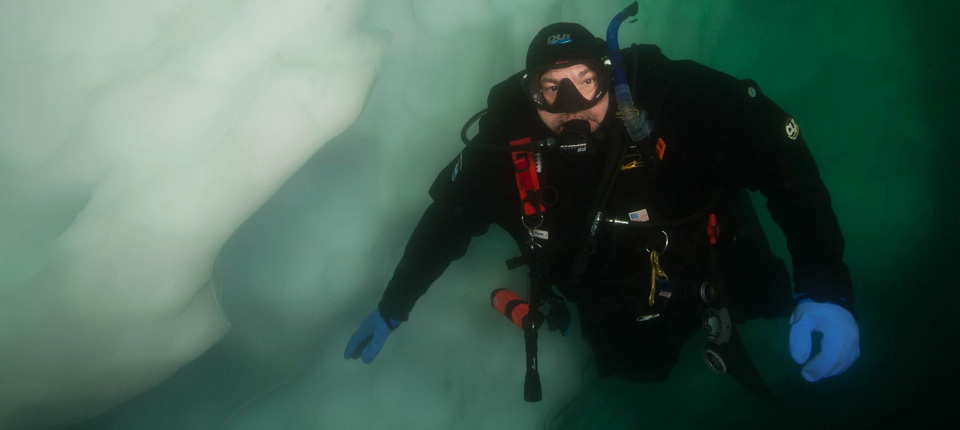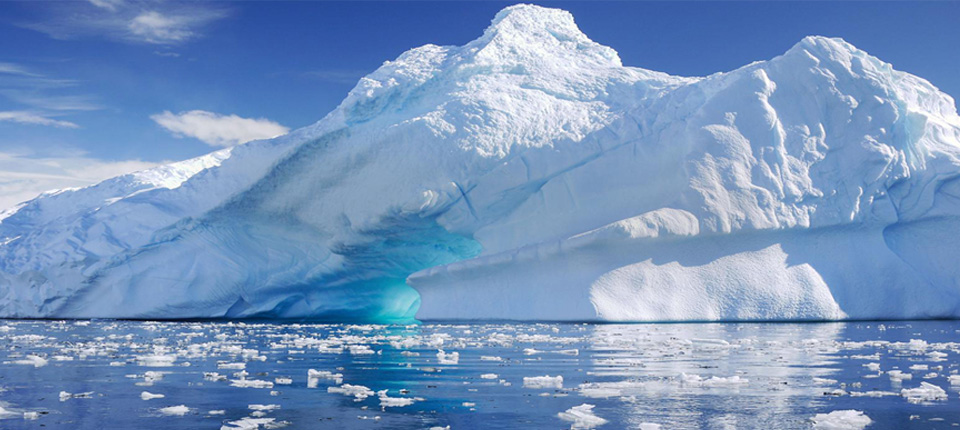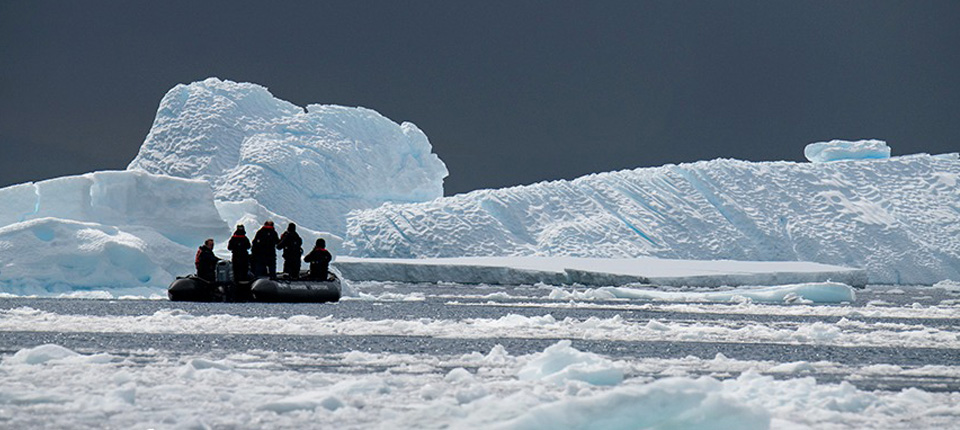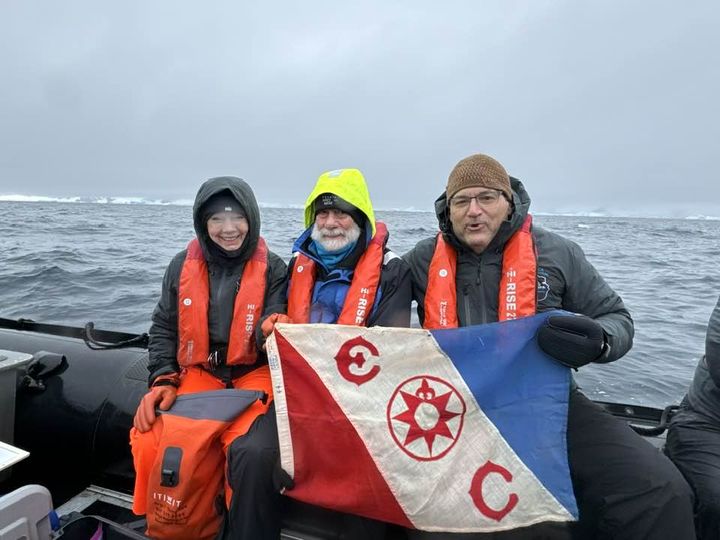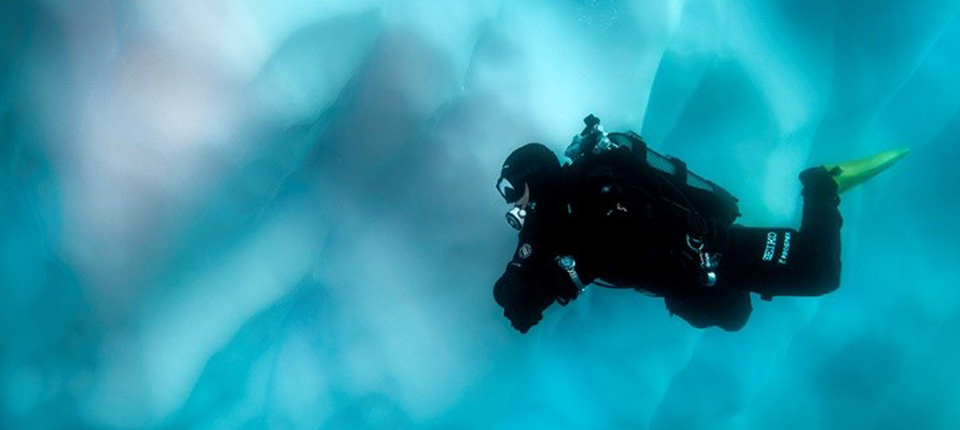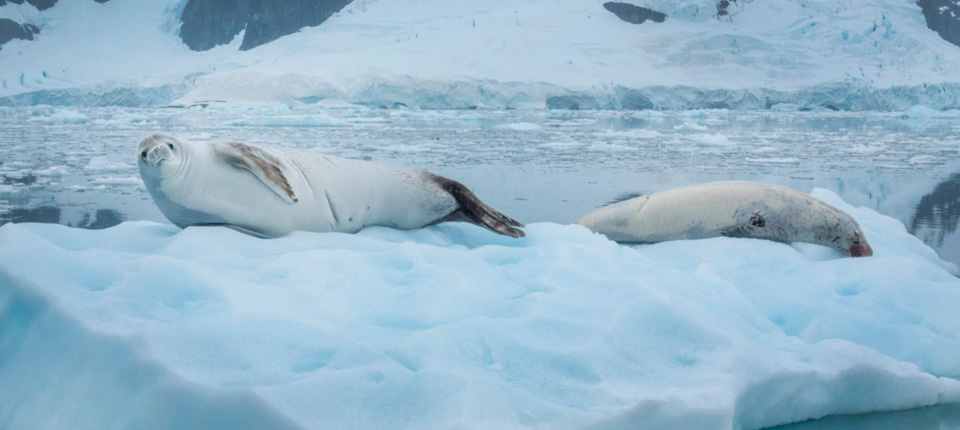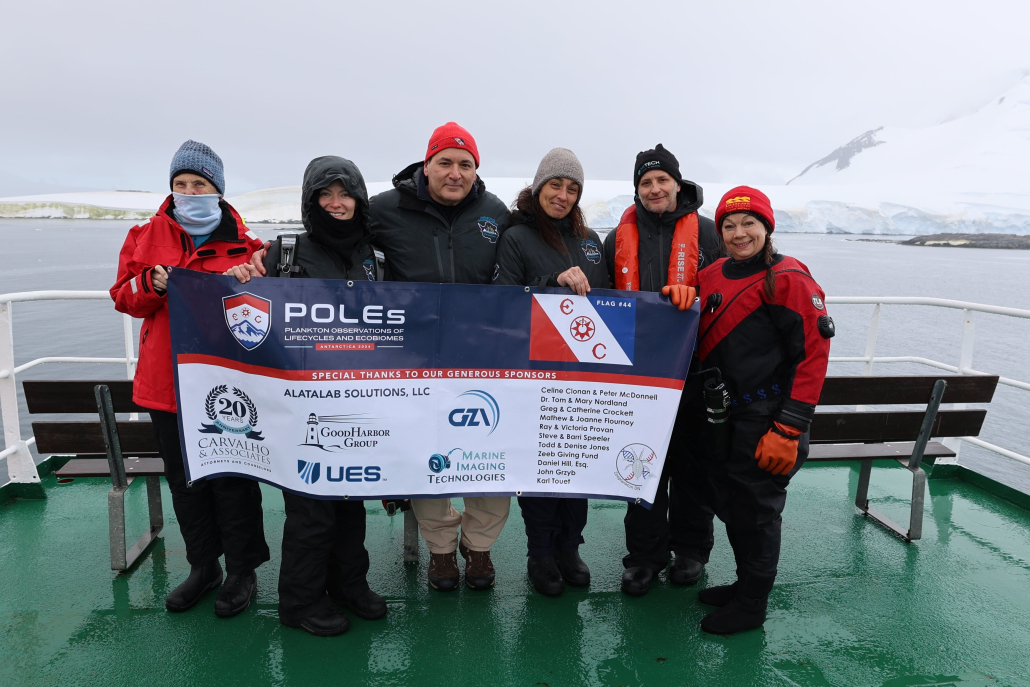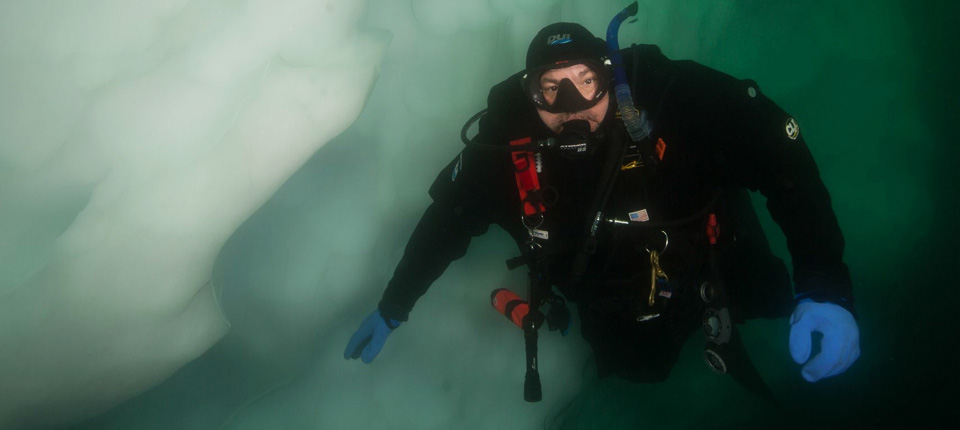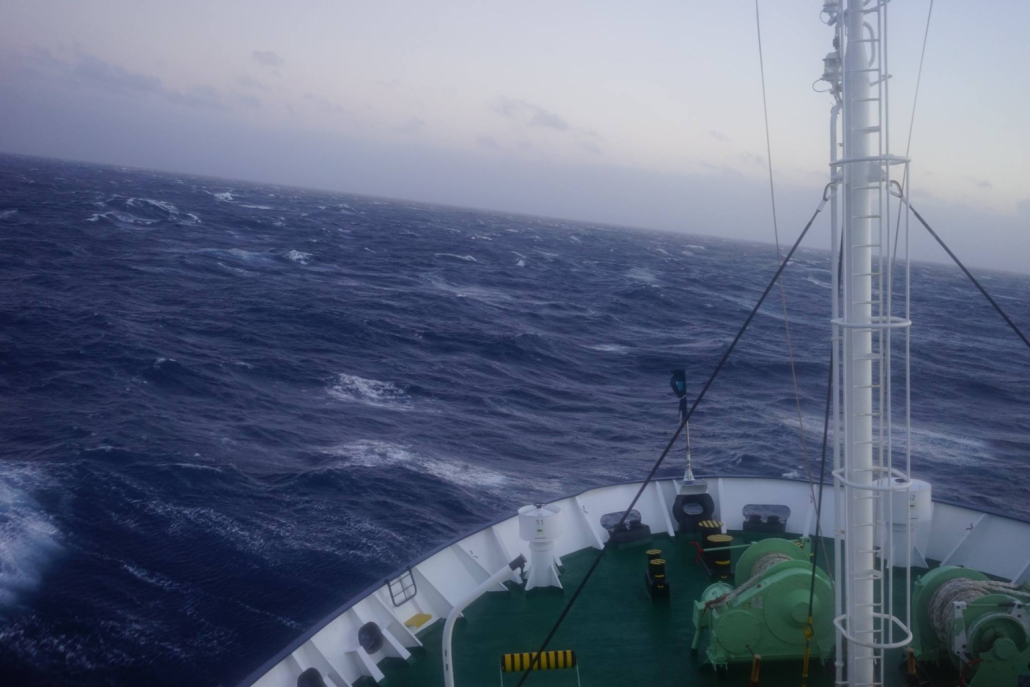Michael P. Carvalho: Environmental Attorney and Global Explorer Tackling Climate Change
In February and March of 2024, Michael Carvalho, Esq. – an environmental attorney, expert SCUBA diver, and Polar Explorer – embarked on his second journey to Antarctica as part of the POLEs Citizen-Science Expedition. This marks his third Polar expedition, following his 2019 Antarctica mission and an expedition to Spitsbergen, Arctic, making him uniquely positioned to contribute to the scientific and policy efforts surrounding the fragile polar regions.
The POLEs Expedition, under the leadership of Dr. Angel Yanagihara (Explorers Club Fellow and University of Hawaii research professor), seeks to assess the impact of glacial runoff, temperature fluctuations, and salinity changes on marine biodiversity. The expedition also coincides with the 150th anniversary of the Challenger Expedition (1872-1876), which catalogued over 4,000 previously unknown species. While the Challenger Expedition was pivotal, it largely overlooked the vast biodiversity of microscopic life. POLEs represents an essential leap forward in understanding these dynamic biomes, focusing on the foundational elements of the marine food web.
The scientific research conducted on this expedition includes:
- Live Plankton Photomicroscopy to document and identify species of phytoplankton and zooplankton, with the potential discovery of previously unknown species in shallow Polar coastal environments.
- Community DNA (cDNA) and Environmental DNA (eDNA) samples collected and analyzed using PCR and molecular biology methods to identify organisms within these ecosystems.
- Physical Oceanography to analyze the interplay of wind, waves, and water density in polar environments. The team will collect water samples and assess glacial runoff impacts on temperature, salinity, and geochemistry.
- Underwater Photogrammetry, utilizing SCUBA divers to photograph and document features of polar environments for ongoing analysis and monitoring.
Why This Work Matters to Our Future
The polar regions are critical indicators of climate change, with rapid temperature increases causing significant shifts in their ecosystems. By studying foundational marine species like plankton, scientists can gain a deeper understanding of the food web dynamics that sustain larger polar animals, such as krill, whales, and seabirds. The POLEs Expedition provides an unparalleled opportunity to assess how climate change affects biodiversity and ecosystems at the ends of the earth.
This work will inform future climate models, providing the data needed for policymakers and scientists to assess whether international environmental protections, such as the Madrid Protocol under the Treaty of Antarctica, are sufficient to safeguard these ecosystems. Michael Carvalho, an experienced delegate at the UNEA-4 Environment Assembly in Nairobi, Kenya, will compile the POLEs findings into a report for a future UNEA Assembly, contributing to the global conversation on climate change, environmental justice, and marine conservation.
Expedition Deliverables
The POLEs Expedition is not just a scientific endeavor; it’s an educational and environmental policy milestone. The data collected will contribute to:
- Banked specimens and GIS data sets for future scientific research.
- Scientific and lay publications to raise awareness of polar ecosystems.
- A policy assessment paper by Michael Carvalho on the Science-Policy Nexus of the Treaty of Antarctica (Madrid Protocol).
- Collaboration with educators and students to engage future generations in climate science and environmental stewardship.
Michael P. Carvalho: Environmental Attorney and Global Explorer Tackling Climate Change
Michael P. Carvalho is not just a distinguished environmental attorney—he’s a dedicated explorer and climate advocate who travels the globe to witness and combat the impacts of climate change firsthand. His commitment to preserving our planet goes beyond the courtroom, as he actively participates in citizen-science expeditions to some of the most vulnerable ecosystems on Earth, from the icy waters of Antarctica to the Arctic Circle.
Michael’s work aligns with the NOAA Fisheries Climate Science Strategy, focusing on critical objectives like understanding mechanisms of change, tracking and providing early warnings, and projecting future conditions. His legal practice is deeply informed by his experiences in the field, where he has seen the urgent need for robust environmental protection and adaptive management strategies to combat the escalating effects of climate change.
As a recognized leader in environmental law, Michael brings his unique perspective—shaped by both legal expertise and real-world exploration—to help clients navigate complex environmental challenges. Whether through policy advocacy, climate-informed legal strategies, or direct participation in groundbreaking scientific research, Michael is at the forefront of global efforts to safeguard our environment for future generations.
March 2024 – POLEs Antarctica Expedition: Dr. Angel Yanagihara, University of Hawaii research professor and leading expert on jellyfish and zooplankton, completes a successful Antarctic expedition, where she focused on collecting eDNA samples to assess species populations and the effects of changing salinity and temperature. Collaborating with Dr. Petra Lenz, she explored the water column for invasive species, contributing critical data on marine biodiversity. This was a flagged expedition for The Explorers Club.
POLEs Antarctica Expedition – March 2024: Michael P. Carvalho dives alongside an iceberg in the frigid waters of Antarctica. As an environmental attorney and citizen-scientist, Michael’s hands-on approach to studying climate change impacts on polar ecosystems is a crucial part of his work to protect these fragile environments.
March 2024 Photos
Antarctica POLEs Expedition
A Tribute to My Father:
Ronald M. Carvalho
My father, Ronald M. Carvalho, always encouraged my brothers and me to dream big and never be afraid to chart a course toward those dreams. His unwavering belief in the power of determination and passion shaped my life in countless ways. While I had known of The Explorers Club for years, I never imagined I would one day become a member myself. But, as my father taught me, with dedication and perseverance, even the loftiest dreams can become reality.
My journey to diving in some of the most remote corners of the earth led me to a lifelong friend and dive buddy, Dr. Angel Yanagihara. Not only did she nominate me for membership in The Explorers Club, but she also invited me to join an extraordinary team of scientists on the POLEs Expedition to Antarctica, carrying the historic Explorers Club Flag #44. This flag, over 100 years old, has accompanied numerous polar expeditions, symbolizing the thrill of discovery and the fulfillment of dreams that seemed impossible.
I am deeply grateful to Angel and to the incredible sponsors who supported our team and ensured our equipment reached Antarctica. The experience was not just about exploration—it was about pushing boundaries, making new friendships, and realizing that with the right course, risks, and determination, dreams can come true.
I look forward to sharing this remarkable journey with anyone who will listen, especially the young dreamers who wonder just how far their aspirations can take them. My father’s legacy lives on in my continued efforts to push the limits of what is possible.
Left Photo: Antarctica March 2024, Dr. Angel Yanagihara, from the University of Hawaii, is one of the world’s leading experts on jellyfish and zoo plankton; Michael Carvalho at far right, holding The Explorers Club flag #44 which is over 100 years old and has accompanied numerous polar expeditions.
Right Photo: Folly Cove, Gloucester, MA, July 1977, Ronald M. Carvalho seen after scuba diving with his three sons from left to right, Mark, Ron and Michael Carvalho (12) at far right.
 As a National Member of The Explorers Club, Michael Carvalho continues to contribute to both scientific exploration and environmental advocacy.
As a National Member of The Explorers Club, Michael Carvalho continues to contribute to both scientific exploration and environmental advocacy.
Michael Carvalho’s election to The Explorers Club follows his notable achievements in exploration and environmental advocacy. In 2018, Carvalho participated in a SCUBA diving expedition to Antarctica, immersing himself in the icy depths alongside penguins and leopard seals. His contributions as a Delegate to the United Nations Environment Program for North America at the UNEA-4 Summit in Nairobi, Kenya in 2019 further showcased his commitment to global environmental issues.
The Explorers Club, founded in 1904 in New York City, is an international society that promotes scientific exploration and field research. It was established by a group of elite adventurers and scientists who wanted to foster a sense of camaraderie and support for exploration. The club became a hub for those engaged in pioneering expeditions, and many famo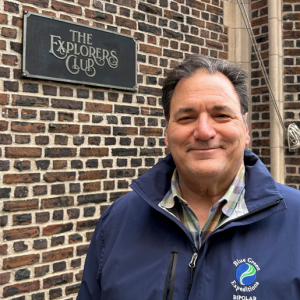 us explorers, including the likes of Sir Edmund Hillary and Neil Armstrong, have been members.
us explorers, including the likes of Sir Edmund Hillary and Neil Armstrong, have been members.
Over the years, The Explorers Club has supported historic expeditions such as the first ascent of Mount Everest, the first trip to the North and South Poles, and the first journey to the Moon. The club’s members have achieved groundbreaking discoveries in diverse fields, from archaeology to marine biology. It continues to serve as a gathering place for explorers, scientists, and conservationists’, offering support through grants, networking, and sharing of knowledge.
Today, The Explorers Club is known for its annual awards, lecture series, and advocacy for scientific research and environmental preservation. Its iconic headquarters in New York City holds a rich collection of artifacts from significant expeditions, reflecting the club’s long history of exploration and discovery.
METRO ATLANTA OFFICE
707 Whitlock Ave, SW | Suite E-19 | Marietta, GA 30064
BOSTON COASTAL OFFICE
Post Office Box 1584 | Manchester, MA 01944
Legal Notice | Contact Us | Privacy Policy
© 2024 All Rights Reserved on original work.


